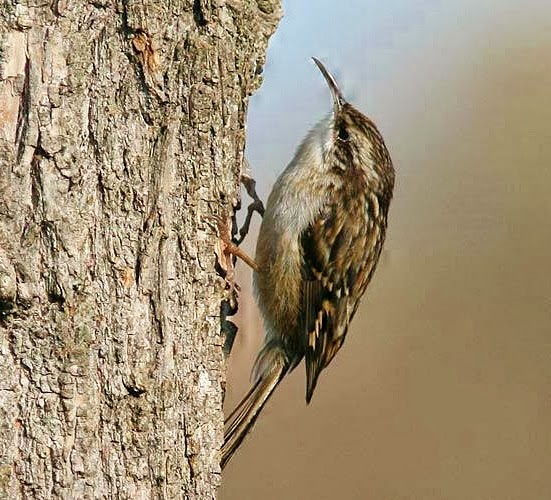 |
| Photo by Aleix Comas (Internet Bird Collection) |
Common name:
short-toed treecreeper (en); trepadeira-comum (pt); grimpereau des jardins (fr); agateador común (es); gartenbaumläufer (de)
Taxonomy:
Order Passeriformes
Family Certhiidae
Range:
This species is found in western Europe, from the Iberian Peninsula north to Denmark and east to Poland, western Ukraine, Bulgaria and western Turkey. There are also populations in the Caucasus mountain range and in north-western Africa from Morocco to Tunisia.
Size:
These birds are 12-14 cm long and have a wingspan of 18-21 cm. They weigh 7,5-11 g.
Habitat:
The short-toed treecreeper is mostly found in temperate forests and woodlands, especially oak Quercus, also using dry tropical forests, dry scrublands, plantations, arable land, and gardens.
Diet:
They probe tree bark in search of various invertebrates, namely spiders and their eggs, and insect larvae.
Breeding:
Short-toed treecreepers breed in March-June. They nest in tree crevices or behind bark flakes, also using old woodpecker nests, crevices in walls and nest boxes. The nest is a bulky cup made of twigs, bark strips, moss, and leaves, with soft linings. The female lays 5-7 eggs,which she incubates alone for 13-15 days. The chicks are fed by both parents and fledge 15-18 days after hatching.
Conservation:
IUCN status – LC (Least Concern)
This species has a very large breeding range and a global population estimated at 2,7-11,7 million individuals. The population has undergone a moderate decline in recent decades, possibly due to habitat lossand fragmentation, but it is not threatened at present.







